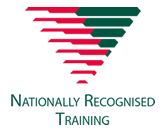Private investigation is a unique and evolving field which has seen consistently high demand for new talent over the last decade. Investigators work as individuals or as contractors to investigation firms, servicing insurers, lawyers and other clients to gather information so these clients can make informed decisions about the application of their policies and processes. Investigators need excellent people and (written and verbal) communication skills, very good self organisation and time management, and an analytical mindset. The Certificate III Investigative Services teaches a methodology and practice standards to help channel these skills into compliant, top quality investigations.
About the course
This is a qualification for investigators, responsible for factual investigation and inquiry work or covert surveillance operations. The aim of this course is to develop your practical skills and processes for effectively conducting investigations in the private sector in Australia. Investigators operate under limited supervision and use discretion and judgement to search for information about a person’s character, actions or work and gather evidence that may be used in court.
Occupational titles may include:
- inquiry agent
- private investigator
This qualification provides occupational specialisations in factual investigation and surveillance, and a pathway to further learning and work in investigations management.
Investigators undertaking surveillance operations are required to operate a surveillance vehicle in compliance with road and traffic laws.
This course is suitable for:
- Investigators in insurance, assessment, fraud, safety or compliance
- Those wishing to adapt their existing people and information-handling skills to a new field
- School-leavers looking for a career which offers flexibility, high demand for your skills, and something new every day
- Anyone else who may be interested! Call us to discuss how investigation skills may be useful for you.
Investigation licences
This qualification is required to obtain an investigation licence from your state’s issuing body (usually the police), often requiring specific units. Prospective investigators also need to complete other checks to receive a licence which are determined by each state body, and separate fees will apply.
View your state’s licence training requirements (the following links take you to external websites):
Victoria – note: your Cert III must be no more than 12 months old to obtain a licence in Victoria, and it must be issued by an approved provider like Wise Workplace Training.
New South Wales – note that these requirements have recently changed.
Australian Capital Territory – currently no requirement for training to obtain an ACT licence, but a NSW licence is often preferred by clients.
Learning modes
We offer two modes to complete the course:
- Self-paced online: enrol anytime and study at your own pace using our online resources and assessments. This works best for learners who have a workplace where they can carry out investigations to support their study.
- Facilitator-led online classes: enrol anytime to attend up to 8 online classes covering the entire course. Online classes are delivered twice a month between July-October and February-May, and you can complete the modules in any order. Please find our live session schedule here.
Each program is the same price, and learners can move between the options to suit their needs during the study period. Contact us to view the upcoming schedule of classes.


